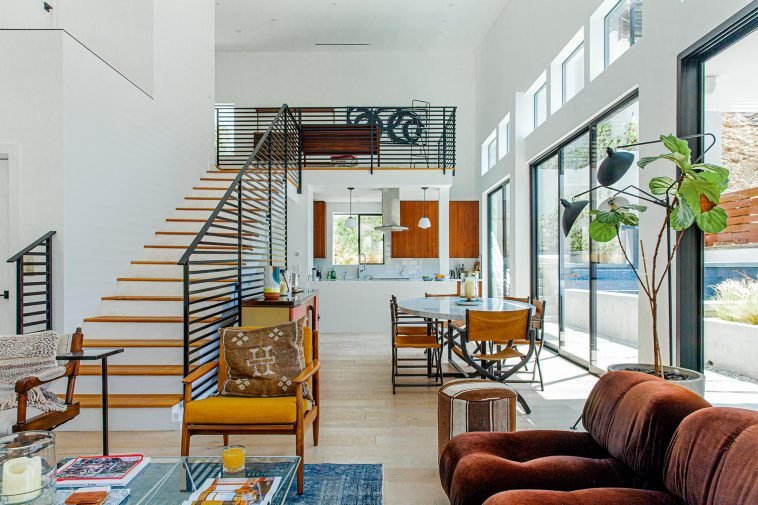Introduction.
Turning a single Airbnb property into an entire empire might seem like a huge leap, but with a strategic approach, it’s entirely possible.
I’ve seen countless stories of people starting with one rental, figuring out what works, scaling smartly, and ultimately creating full-fledged Airbnb businesses.
But how exactly does someone go from managing one or two properties to overseeing a large portfolio? That’s what this guide is all about.
I’m here to break down what it takes to build an Airbnb empire—everything from the startup basics to managing multiple properties, marketing them effectively, and making this venture as profitable as possible.
Understanding the Airbnb Opportunity
Airbnb’s reach has expanded significantly since its start in 2008. Today, over 4 million hosts serve more than 150 million users across the globe.
The demand for short-term rentals is higher than ever, with travellers seeking unique, flexible, and homey options beyond traditional hotels.
Airbnb isn’t just about leisure; people also use it for business stays, relocations, or just short-term arrangements when moving to a new city.
Why Consider an Airbnb Empire?
For many, Airbnb has proven to be lucrative. By leveraging multiple properties and optimizing each to maximize occupancy and rates, hosts can increase their income potential exponentially.
However, success here requires more than a few rented properties; it demands an efficient, well-planned approach with a strong foundation in customer satisfaction, property management, and strategic growth.
How Do I Build an Airbnb Empire?
1. Start with One or Two Properties.
Before jumping into multiple properties, it’s smart to start small. Choose one or two units, whether you own them or have a rental agreement allowing short-term sublets.
This is your testing ground, where you’ll get firsthand experience in managing guest expectations, setting pricing, handling bookings, and improving your listing’s ranking.
Key Points to Get Started:
- Location Matters: High-demand areas like city centers or tourist hotspots are generally better for Airbnb.
- Setup and Design: Make the property feel welcoming and unique to attract better reviews.
- Pricing: Start with competitive pricing, but don’t undervalue. Aim to cover your expenses while appealing to initial guests.
2. Get Familiar with Airbnb’s Platform and Tools.
Knowing the Airbnb platform inside and out is critical for scaling. Airbnb offers hosts insights into their performance, demand forecasts, pricing recommendations, and more.
Familiarizing yourself with these tools and using them strategically can give you a huge advantage.
- Airbnb Smart Pricing: Automatically adjusts rates based on demand.
- Airbnb Insights: Lets you see how your listing performs in search results.
- Automated Messaging: Helps streamline communication with guests.
3. Build a Brand for Your Listings.
Creating a brand for your properties can increase bookings and lead to higher ratings. Think about what makes each property unique and design it around that theme.
Some hosts focus on eco-friendly decor, while others might focus on luxury touches or tech-friendly amenities. Having a recognizable brand can make your listings stand out.
Examples of Building Your Brand:
- Consistent Decor Theme: Pick a style (e.g., coastal, modern, rustic) and keep it consistent across properties.
- Brand Name: Consider naming your properties with a memorable brand name.
- Special Amenities: Features like high-speed Wi-Fi, cozy nooks, or premium coffee setups can set you apart.
4. Expand with Property Management Software.
Once you’re managing three or more properties, the day-to-day tasks can get overwhelming. Property management software (PMS) can automate booking synchronization, pricing adjustments, guest messaging, and more. There are many PMS options designed specifically for short-term rentals, such as Guesty, Lodgify, and Hospitable. These tools allow you to handle more properties with less manual effort.
5. Financing for Growth
Scaling requires capital, and you’ll need a plan for financing new properties. Options include:
- Traditional Mortgages: Requires a down payment but has long-term financial benefits.
- Private Investors: Some investors are interested in the high returns of short-term rentals.
- Joint Ventures: Partnering with other Airbnb hosts to buy or lease properties.
6. Optimize Operations and Maintenance.
Maintaining multiple properties at high standards is essential for success. Build relationships with reliable cleaning teams, contractors, and local services. You may also want to set up standard operating procedures (SOPs) for everything from guest check-ins to handling emergencies. Outsourcing tasks you can’t personally handle can save time and prevent burnout.
7. Market Beyond Airbnb.
While Airbnb is the primary platform for most hosts, expanding to other channels, like Vrbo, Booking.com, or even direct booking websites, can boost visibility. You may need to adjust your pricing and strategy for different platforms, but this diversification helps protect against changes in Airbnb’s policies or algorithms.
Pros and Cons of Building an Airbnb Empire
Pros
- Scalable Income: Once established, each new property contributes to a larger monthly income.
- Flexible Management: You can automate much of the process, especially with the right software.
- Higher ROI than Long-term Rentals: Short-term rentals tend to have a higher return on investment due to nightly rates.
Cons
- Higher Upfront and Ongoing Costs: Each property requires setup, maintenance, and sometimes legal adjustments.
- Regulatory Risks: Airbnb regulations vary by city, and some places heavily restrict short-term rentals.
- Time-Consuming Management: Even with automation, maintaining quality across multiple listings takes work.
FAQs about Building an Airbnb Empire
Q: Do I need to own all the properties in my Airbnb empire?
A: Not necessarily. Many hosts use rental arbitrage, where they lease properties and then sublet them on Airbnb with the landlord’s permission.
Q: How much can I make from Airbnb properties?
A: Earnings vary widely based on location, season, property type, and guest ratings. On average, Airbnb hosts in popular cities can make $20,000–$50,000 per year per property, though some earn much more.
Q: What are the biggest challenges of scaling an Airbnb business?
A: Managing quality across multiple properties, handling guest issues, staying compliant with local laws, and keeping up with property maintenance are common challenges.
Q: How can I make my listings stand out on Airbnb?
A: Investing in great photos, creating a unique experience, and offering standout amenities like fast Wi-Fi or self-check-in options are effective ways to improve your listing’s visibility.
Q: Is it possible to run an Airbnb empire remotely?
A: Yes, many hosts manage properties remotely by using property management services and automation tools, though it requires reliable local contacts for cleaning and maintenance.
Conclusion.
Building an Airbnb empire is an exciting journey but requires careful planning, a willingness to learn, and the ability to adapt to the fast-changing short-term rental landscape.
Whether you’re starting with one property or already managing a few, scaling up can open new income avenues if you’re strategic about growth.
So, what’s the next step you’re considering to start or grow your Airbnb empire?





GIPHY App Key not set. Please check settings